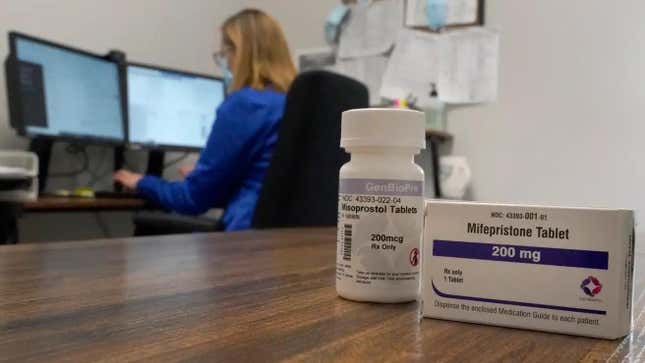People Are Stocking Up on Abortion Pills in Record Numbers
New research makes clear that people are following news about abortion access and trying to be proactive amid the chaotic national legal landscape.


In February, Jezebel recommended purchasing abortion pills in advance of an unwanted pregnancy—which is called advance provision—ahead of the current legal back-and-forth surrounding the FDA’s 2000 approval of the pill. A couple of months later, in April, a far-right federal judge attempted to overturn that approval, prompting legal mayhem that’s since worked its way to the Supreme Court, where a ruling to challenge the pill is slated for this summer. According to a research letter published in JAMA Internal Medicine on Tuesday, requests for abortion pills from people who weren’t pregnant surged during this period of uncertainty. The research letter cites data provided by Aid Access, a Europe-based telemedicine service that mails medication abortion to all 50 states.
According to the letter, Aid Access received nearly 50,000 (48,400) requests for advance provision of abortion pills between September 2021—when Texas enacted its six-week, so-called bounty hunter abortion ban replicated by several states—through April 2023, when Texas judge Matthew Kacsmaryk tried to ban most abortion pills. Researchers note that advance provision requests peaked in May 2022 when it was leaked that the Supreme Court planned to overturn Roe v. Wade. Eight months before the leak, the average number of daily requests for advance provision of abortion pills sat at around 25; after the leak, that number increased nearly 10-fold, soaring to 247. After the Supreme Court’s decision to overturn Roe arrived in June 2022, daily requests dropped to 89—which could have stemmed from apprehension about running into legal trouble—before rising, again, to 172 in April 2023. The research makes clear that people are following the increasingly sporadic news about abortion access and what it means for their lives, and trying to be proactive amid the chaotic national legal landscape.
-

-

-

-

-

-

-

-

-

-

-

-

-

-

-

-

-

-

-

-

-

-

-

-

-

-

-

-

-

-

-

-

-

-

-

-

-

-

-

-







































